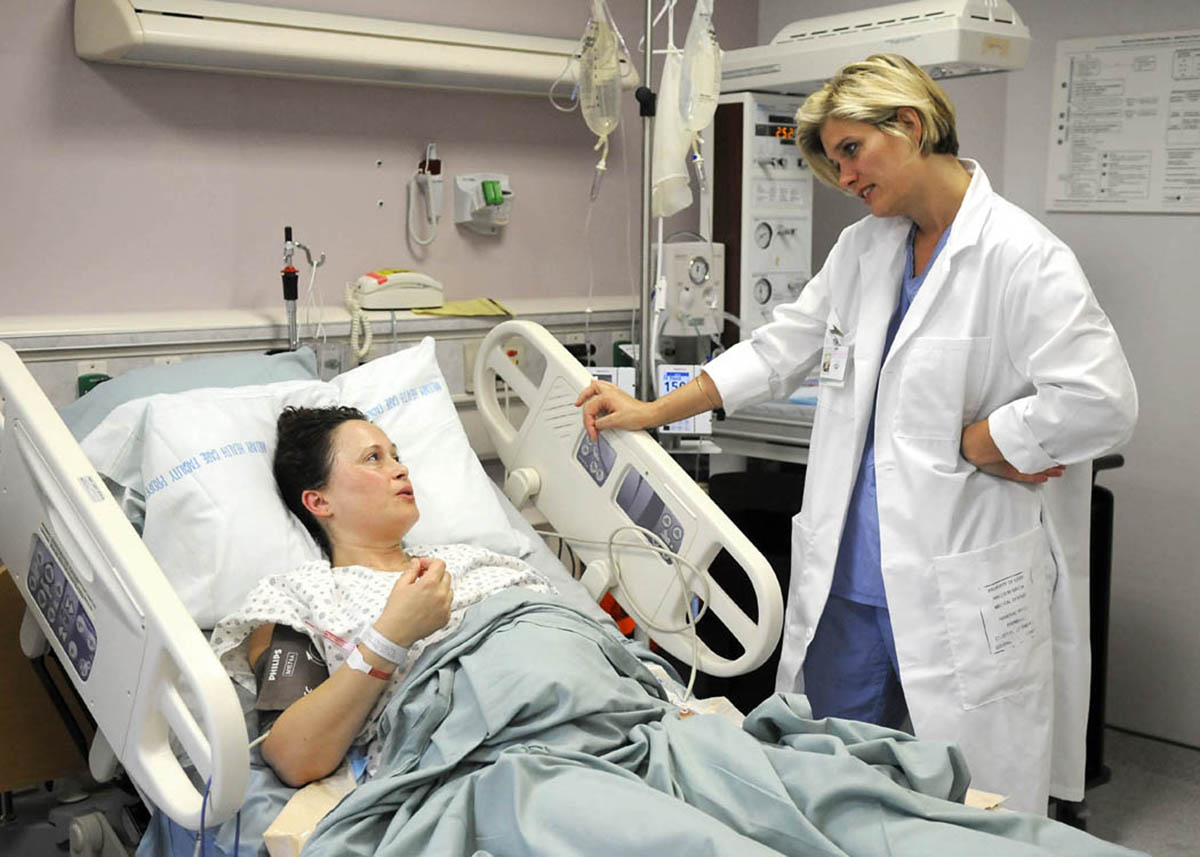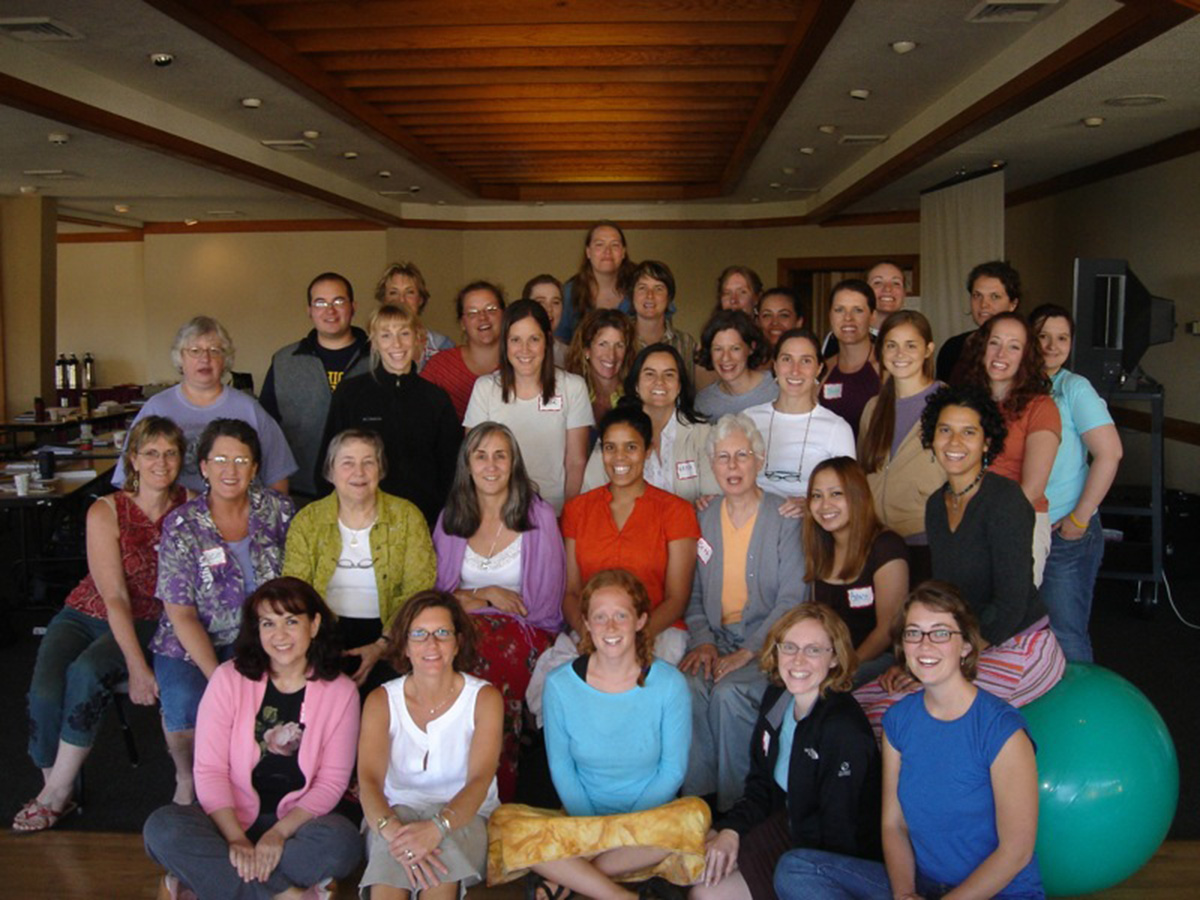Gone are the days in which laboring women were put into "twilight sleep", an anesthetic state that rendered them unable to even remember their birth experiences. Gone are the days in which fathers paced nervously up and down hospital halls, waiting for the news of their baby's birth. Gone are the days in which your average mother to-be knew nothing about the birth process. In most developed countries across the world, giving birth has become a much more personal, much more humane process.

Yet, even with competent healthcare professionals, partners, and friends by their side, labor and childbirth are frequently not just transformative, but also difficult experiences to women. They are experiences during which many women long to have a motherly or sisterly figure hold their hand, both literally and metaphorically, during which they long for someone who understands exactly what is happening and who is there just for them.
Enter the doula, a word that means "servant of women" in Greek. A fairly recent addition to the world of pregnancy and birth care, the doula is not a medical professional but someone whose sole role is accompanying mothers to-be on their exciting and sometimes slightly scary journeys.
What Does A Doula Do?
As the field has expanded, doulas are present in ever-increasing capacities. Women may have a prenatal doula to support them during pregnancy and a postpartum doula after birth to help with such things as getting breastfeeding off to a good start, teaching baby massage, and showing new mothers how to use baby carriers. There are even, I have heard, "hospice doulas" these days, people who support those who are about to pass away. Most often, however, the word "doula" still refers to a birth doula, that is, someone who is there to help and support a mother while she gives birth.
The term has become associated with what some would call "the natural childbirth movement", and indeed, women often hire doulas in the hope that they can coach them during unmedicated hospital births, birth center births, and homebirths. Doulas can absolutely be present for induced labors and cesarean births as well, however.
As a doula's role is the support of women in the process towards motherhood, and each women's needs are unique, a doula's activities will vary from birth to birth. They can include such things as advising the mother on laboring positions, providing medication-free pain relief techniques such as hypnobirthing and meditation, breathing and birth affirmations, and advocating for patients in a previously agreed-upon manner. Individual doulas may be trained in such things as massage and aromatherapy. A large part of being a doula is simply being present, providing a friendly, calm, and knowledgeable face.
Thinking Of Becoming A Doula?
What Qualities Do Good Doulas Need?
Doulas need the same basic qualities that make anybody in a caring capacity able to be good at their jobs. As a doula, it is essential to be caring, outgoing, empathic, practical, and not afraid of "blood and gore" or stressful situations. If you are the kind of person who naturally puts people of widely varying backgrounds at ease, who thrives on social interactions, and who always has the best interests of your clients at heart at a vulnerable stage of their life, you may be ideally suited to becoming a doula.
Another quality that can't be overlooked is the power of first-hand experience. Most women who are drawn to the doula field are those who are genuinely fascinated by labor and birth, and that first and foremost means women who are mothers themselves. Women who have not had babies can and do become doulas, and good doulas at that, but first-hand experience will certainly give you an edge.

What Does It Take To Get Certified As A Doula?
Depending on where you live, you may not need any kind of certification to practice as a doula. However, where such certification is available, obtaining it will both help your career and improve your ability to support women as they go through the process of giving birth. DONA International and Childbirth International are examples of organizations that provide doulas with training and certification. Similar smaller-scale organizations will exist in different countries, such as Doula UK, Doula Training Canada, the Australian Doula College, and Doulas of Southern Africa (DOSA).
The training offered by these programs will range from workshops to courses you can study at home, and attending births alongside more experienced doulas. By the time you do get certified, you will know that you have the theoretical knowledge you need to begin supporting women.
Hard Questions To Ask Yourself
Women who become doulas will view their chosen profession as a calling as much as a job. Regardless, if they are intending to use the income they make from doula-ing to support their families, the question of whether it is possible to make a full-time living out of being a doula will be on their minds. The short answer is that some can. You will have to research the demand in your area before you can grasp whether this is possible where you live, however. You also have to realize that new clients will have to find you, rather than you them.
Your working hours will be unpredictable as a doula: women go into labor at all times of the day and night. If you have small children at home yourself, or you are studying, for instance, these non-traditional working hours can prove to be complicated. It is something to consider before deciding whether you want to pursue being a doula.
Doulas aren't medical professionals. You are likely to have people ask whether you want to attend their homebirths instead of a midwife, as well as people seeking medical advice from you. For the safety of your clients and your own safety (you don't want to be accused of practicing medicine without a license), this is another thing to keep in mind.
Finally, as you gain experience, it is pretty much inevitable that you will be witness to scary, sad, and stressful situations and outcomes. Are you ready for this? Have you considered how you might feel if a mother you are supporting dies, or her baby does? Doulas need to be able to be supportive and yet keep a cool head, to be able to go on afterwards.
- Photo courtesy of 123rf.com- stock photos
- Photo courtesy of eliaspunch: www.flickr.com/photos/eliaspunch/177354585/
- Photo courtesy of eliaspunch: www.flickr.com/photos/eliaspunch/177354585/


Your thoughts on this